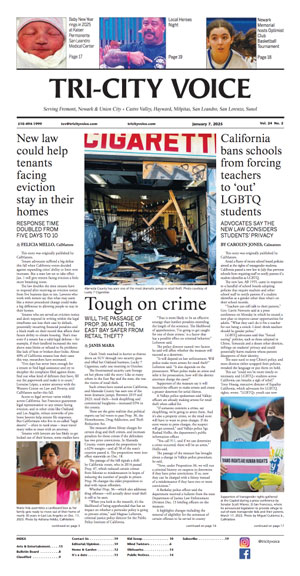[et_pb_section bb_built=”1″ _builder_version=”3.22″][et_pb_row _builder_version=”3.25″ background_size=”initial” background_position=”top_left” background_repeat=”repeat”][et_pb_column type=”4_4″ _builder_version=”3.0.47″ custom_padding=”|||” custom_padding__hover=”|||”][et_pb_image src=”http://tricityvoice.com/wp-content/uploads/2018/10/TCV-Search.png” align=”center” force_fullwidth=”on” align_tablet=”center” align_last_edited=”on|desktop” _builder_version=”4.9.6″ animation_style=”fade” box_shadow_style=”preset3″ vertical_offset_tablet=”0″ horizontal_offset_tablet=”0″ z_index_tablet=”0″]
[/et_pb_image][et_pb_divider divider_weight=”4″ _builder_version=”3.14″ height=”0px”]
[/et_pb_divider][et_pb_text _builder_version=”4.16.0″ z_index_tablet=”500″ hover_enabled=”0″ text_text_shadow_horizontal_length_tablet=”0px” text_text_shadow_vertical_length_tablet=”0px” text_text_shadow_blur_strength_tablet=”1px” link_text_shadow_horizontal_length_tablet=”0px” link_text_shadow_vertical_length_tablet=”0px” link_text_shadow_blur_strength_tablet=”1px” ul_text_shadow_horizontal_length_tablet=”0px” ul_text_shadow_vertical_length_tablet=”0px” ul_text_shadow_blur_strength_tablet=”1px” ol_text_shadow_horizontal_length_tablet=”0px” ol_text_shadow_vertical_length_tablet=”0px” ol_text_shadow_blur_strength_tablet=”1px” quote_text_shadow_horizontal_length_tablet=”0px” quote_text_shadow_vertical_length_tablet=”0px” quote_text_shadow_blur_strength_tablet=”1px” header_text_shadow_horizontal_length_tablet=”0px” header_text_shadow_vertical_length_tablet=”0px” header_text_shadow_blur_strength_tablet=”1px” header_2_text_shadow_horizontal_length_tablet=”0px” header_2_text_shadow_vertical_length_tablet=”0px” header_2_text_shadow_blur_strength_tablet=”1px” header_3_text_shadow_horizontal_length_tablet=”0px” header_3_text_shadow_vertical_length_tablet=”0px” header_3_text_shadow_blur_strength_tablet=”1px” header_4_text_shadow_horizontal_length_tablet=”0px” header_4_text_shadow_vertical_length_tablet=”0px” header_4_text_shadow_blur_strength_tablet=”1px” header_5_text_shadow_horizontal_length_tablet=”0px” header_5_text_shadow_vertical_length_tablet=”0px” header_5_text_shadow_blur_strength_tablet=”1px” header_6_text_shadow_horizontal_length_tablet=”0px” header_6_text_shadow_vertical_length_tablet=”0px” header_6_text_shadow_blur_strength_tablet=”1px” box_shadow_horizontal_tablet=”0px” box_shadow_vertical_tablet=”0px” box_shadow_blur_tablet=”40px” box_shadow_spread_tablet=”0px” text_text_shadow_horizontal_length=”text_text_shadow_style,%91object Object%93″ text_text_shadow_vertical_length=”text_text_shadow_style,%91object Object%93″ text_text_shadow_blur_strength=”text_text_shadow_style,%91object Object%93″ link_text_shadow_horizontal_length=”link_text_shadow_style,%91object Object%93″ link_text_shadow_vertical_length=”link_text_shadow_style,%91object Object%93″ link_text_shadow_blur_strength=”link_text_shadow_style,%91object Object%93″ ul_text_shadow_horizontal_length=”ul_text_shadow_style,%91object Object%93″ ul_text_shadow_vertical_length=”ul_text_shadow_style,%91object Object%93″ ul_text_shadow_blur_strength=”ul_text_shadow_style,%91object Object%93″ ol_text_shadow_horizontal_length=”ol_text_shadow_style,%91object Object%93″ ol_text_shadow_vertical_length=”ol_text_shadow_style,%91object Object%93″ ol_text_shadow_blur_strength=”ol_text_shadow_style,%91object Object%93″ quote_text_shadow_horizontal_length=”quote_text_shadow_style,%91object Object%93″ quote_text_shadow_vertical_length=”quote_text_shadow_style,%91object Object%93″ quote_text_shadow_blur_strength=”quote_text_shadow_style,%91object Object%93″ header_text_shadow_horizontal_length=”header_text_shadow_style,%91object Object%93″ header_text_shadow_vertical_length=”header_text_shadow_style,%91object Object%93″ header_text_shadow_blur_strength=”header_text_shadow_style,%91object Object%93″ header_2_text_shadow_horizontal_length=”header_2_text_shadow_style,%91object Object%93″ header_2_text_shadow_vertical_length=”header_2_text_shadow_style,%91object Object%93″ header_2_text_shadow_blur_strength=”header_2_text_shadow_style,%91object Object%93″ header_3_text_shadow_horizontal_length=”header_3_text_shadow_style,%91object Object%93″ header_3_text_shadow_vertical_length=”header_3_text_shadow_style,%91object Object%93″ header_3_text_shadow_blur_strength=”header_3_text_shadow_style,%91object Object%93″ header_4_text_shadow_horizontal_length=”header_4_text_shadow_style,%91object Object%93″ header_4_text_shadow_vertical_length=”header_4_text_shadow_style,%91object Object%93″ header_4_text_shadow_blur_strength=”header_4_text_shadow_style,%91object Object%93″ header_5_text_shadow_horizontal_length=”header_5_text_shadow_style,%91object Object%93″ header_5_text_shadow_vertical_length=”header_5_text_shadow_style,%91object Object%93″ header_5_text_shadow_blur_strength=”header_5_text_shadow_style,%91object Object%93″ header_6_text_shadow_horizontal_length=”header_6_text_shadow_style,%91object Object%93″ header_6_text_shadow_vertical_length=”header_6_text_shadow_style,%91object Object%93″ header_6_text_shadow_blur_strength=”header_6_text_shadow_style,%91object Object%93″ vertical_offset_tablet=”0″ horizontal_offset_tablet=”0″ background_pattern_color=”rgba(0,0,0,0.2)” background_mask_color=”#ffffff”]
Modification, and in some cases, desecration and destruction of the environment has been the hallmark of human impact on the earth’s environment. Recognition of the tenuous and short-term nature of our reliance on the decay and decomposition of previous inhabitants of our planet has been a slow, painful process.
This source of energy has facilitated many miraculous advances and eased human discomfort by providing shelter, warmth, medicine transportation, communication and a host of equally important facets of society. However, as a finite resource, it is widely accepted that carbon-based fuels must ultimately be supplemented or replaced. Alternatives have become available, but change, especially major transformations, that threaten to upset the current economic and social status quo of existing infrastructure and investment capital are bitterly resisted.
As we approach Earth Day 2022 [April 22] in the midst of global turmoil prominently focused on a world divided by ideologies and economic imperatives, one major lesson to be learned is the fragility of our way of life and… life itself. While physical combat between these forces currently lies on the other side of the planet, its effects are global and sound shrieking warnings to everyone, no matter where we live. Atrocious battlefield behavior now extends beyond front lines into cyberspace and global economic impacts. At its core lies reliance on natural gas and oil for energy, the Achilles’ heel of modern society.
There is nothing new about the debate over sources of energy. Through the “fits and starts” or an energy revolution, progress has been made to harness solar, wind gravitational and other more sustainable sources. By relieving the leverage of fossil fuels and increasing access to plentiful energy, some primary motivations for conflict can be eliminated even if other social and governmental differences remain.
In 1970, Joni Mitchell, wrote and sang “Big Yellow Taxi” that alluded to indiscriminate, destruction of natural resources. Regulators often thought of mineral and environmental concerns as trivial in the context of the earth as a whole, but little by little, recognition of the ultimate consequences have become undeniable. Now, 50 years later, we are faced with the reality of global warming, continuous warfare with energy at its core and a race against suffocating pollution.
Land use can be a confusing and complex topic when presented without global context. While in some cases, short-term objectives may be satisfied with development, long term effects are overlooked. Currently small, ADU housing units have appeared in the Castro Valley BART parking lot due to a reduction of parking requirements. Ohlone College is applying for state funds to assess frontage acreage for housing at both Newark and Fremont campuses. How will these changes affect the environment? Will changes at Castro Valley BART [and others such as Fremont] replace a parking lot with housing instead of creating additional open space? Will the Ohlone proposal exacerbate traffic concerns? Is there an existing college student housing crisis at Ohlone?
Mitchell’s warning, stemming from a visit to Hawaii, seeing the juxtaposition of a lush, verdant landscape and tourist development, rings as a loud, warning today. Against the backdrop of rising global energy demands and dwindling traditional sources, continuation, acceleration of alternative energy supplies and long-term planning is not only desirable, but critical for survival.
They paved paradise
And put up a parking lot
With a pink hotel, a boutique
and a swinging hot spot
Don’t it always seem to go
That you don’t know what you’ve got
Till it’s gone
They paved paradise
And put up a parking lot
Joni Mitchell
Big Yellow Taxi 1970
[/et_pb_text][/et_pb_column][/et_pb_row][/et_pb_section]



